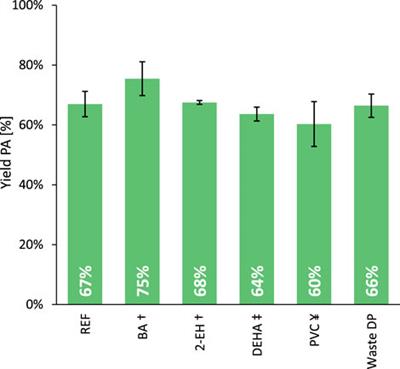ORIGINAL RESEARCH
Published on 23 Sep 2024
Enhancing catalytic pyrolysis of polypropylene using mesopore-modified HZSM-5 catalysts: insights and strategies for improved performance

doi 10.3389/fceng.2024.1439400
- 1,219 views
572
Total downloads
5,184
Total views and downloads
Submit your idea
Select the journal/section where you want your idea to be submitted:
ORIGINAL RESEARCH
Published on 23 Sep 2024

ORIGINAL RESEARCH
Published on 13 Sep 2024

Manuscripts can be submitted to this Research Topic via the main journal or any other participating journal.
Submit your idea
Select the journal/section where you want your idea to be submitted: